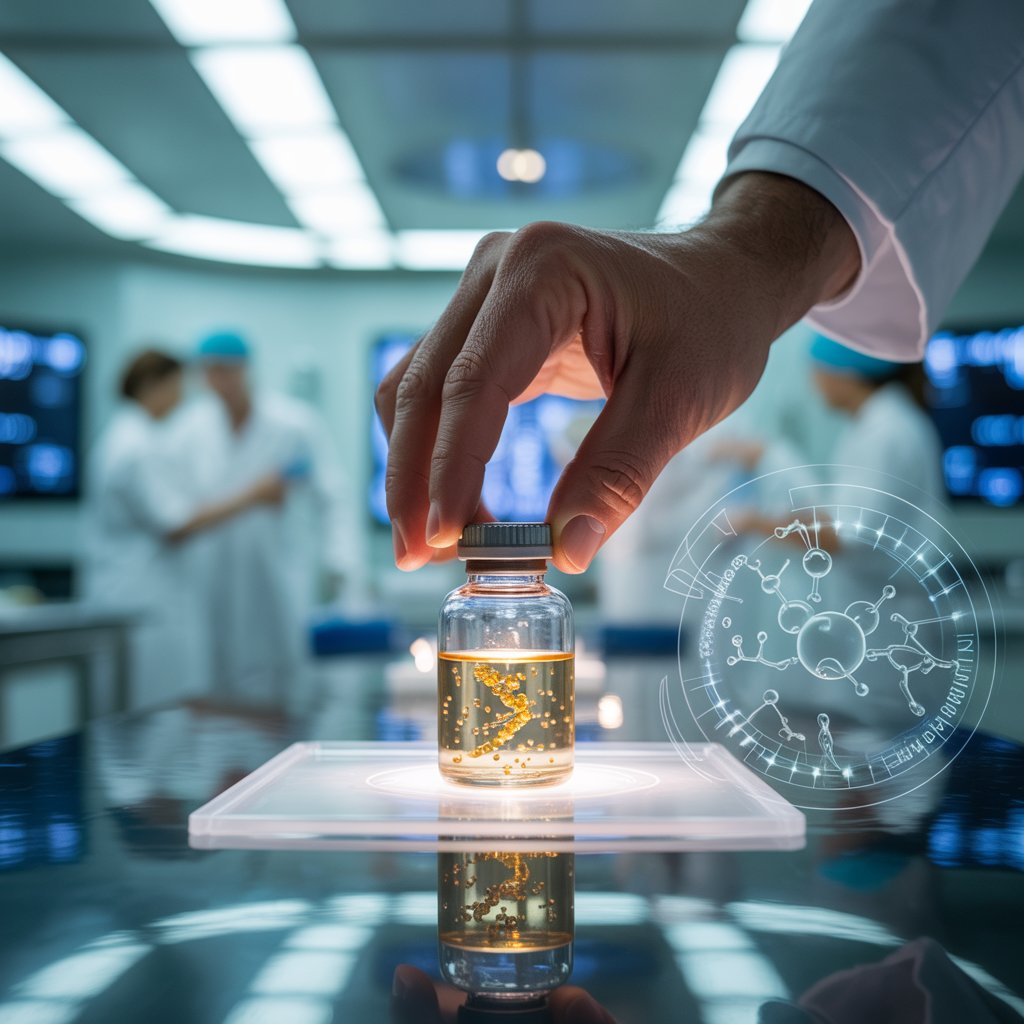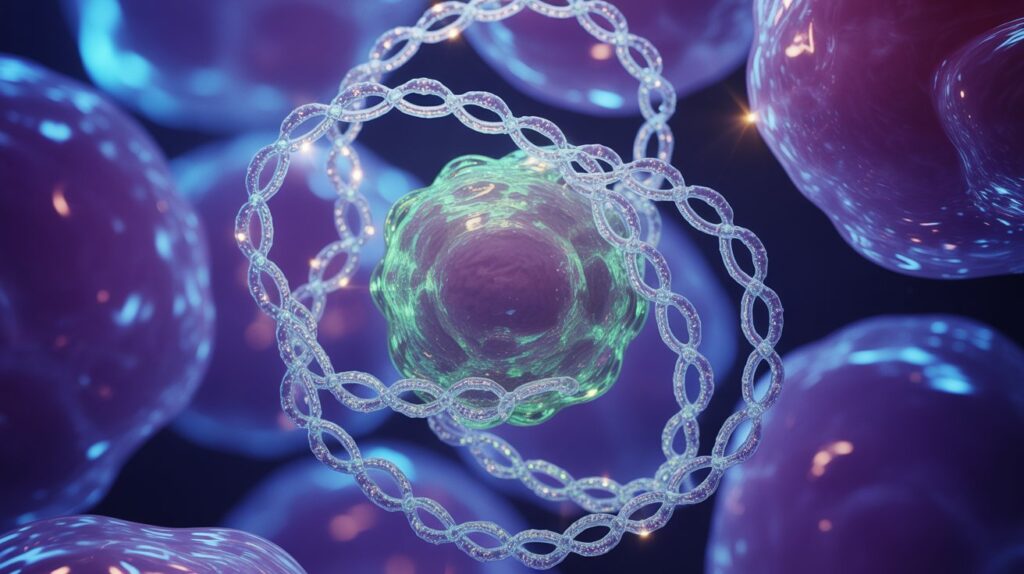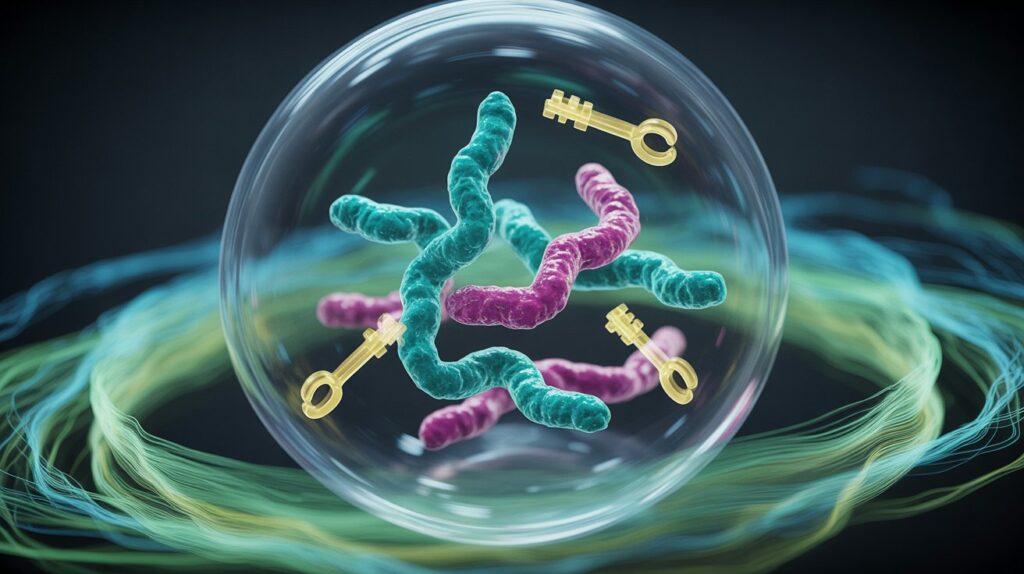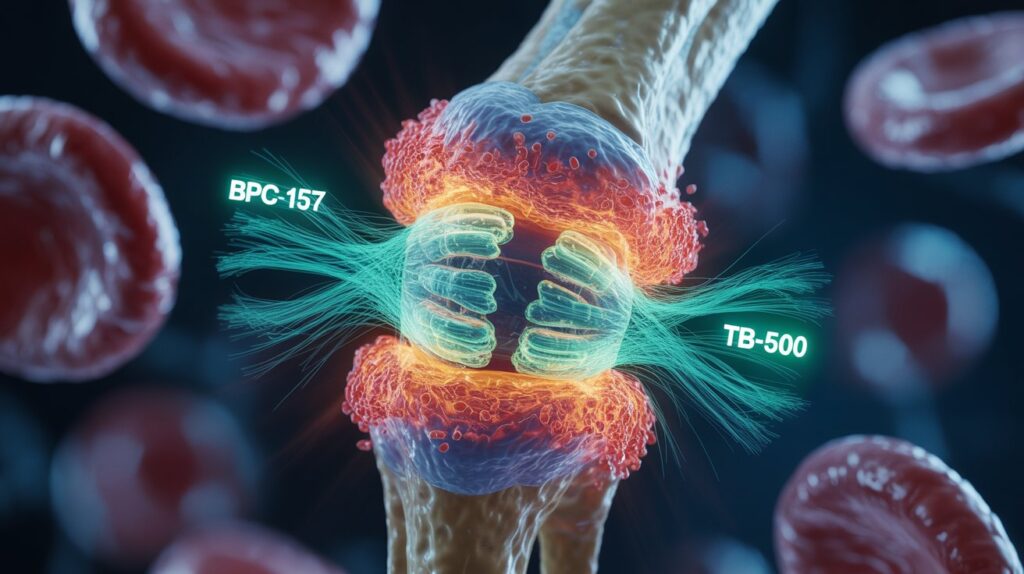
Peptide Therapy
Key Takeaways
- Peptide therapy activates your body’s inherent repair systems to address root causes of health concerns, not just symptoms—offering personalized solutions for weight management, recovery, anti-aging, and overall wellness.
- Dr. Joel Cherdack and his team deliver peptide treatments through a collaborative, diagnostics-driven approach that ensures each protocol is tailored to your unique biochemistry and health goals.
- Peptides like Semaglutide and Tirzepatide can help manage weight by naturally regulating appetite and metabolism, while growth hormone-releasing peptides enhance recovery and promote tissue regeneration.
- BPC-157 and TB-500 accelerate healing across multiple tissue types, offering breakthrough solutions for injuries resistant to conventional treatments.
- Peptide therapy is administered through various methods (injections, oral formulations, nasal sprays) with minimal side effects when provided under proper medical supervision.
Understanding Peptide Therapy: A Comprehensive Guide

Peptide therapy represents a frontier in regenerative medicine that harnesses the body’s natural healing mechanisms to address a wide range of health concerns. At its core, peptide therapy involves the strategic use of specific amino acid sequences—peptides—to stimulate cellular repair, optimize bodily functions, and enhance overall wellness. Unlike conventional treatments that may simply mask symptoms, peptide therapy works with your body’s innate biological processes to create lasting improvements in health and vitality.
In the landscape of modern medicine, peptide therapy stands as a bridge between conventional pharmaceuticals and holistic approaches. These powerful compounds occur naturally in the body, serving as messengers that direct crucial biological functions including tissue repair, immune response, hormone regulation, and cellular regeneration. When administered therapeutically, peptides can amplify these natural processes, helping to restore balance and function where deficiencies or dysfunctions exist.
Dr. Joel Cherdack and his dedicated team have been at the forefront of integrating peptide therapies into comprehensive treatment protocols for patients seeking evidence-based alternatives to traditional medical approaches. With extensive training in regenerative medicine and a commitment to personalized care, Dr. Cherdack has witnessed firsthand the transformative potential of peptide therapy for patients struggling with chronic conditions, athletic recovery, metabolic challenges, and age-related concerns.
The beauty of peptide therapy lies in its precision. Rather than broadly affecting multiple systems as many pharmaceuticals do, peptides typically target specific receptors on cell surfaces, triggering precise biological responses. This targeted approach minimizes side effects while maximizing therapeutic outcomes. When you undergo peptide therapy at our clinic, you’re not just receiving a treatment—you’re activating your body’s own healing capabilities through scientifically validated pathways.
What sets our approach apart is the recognition that each patient presents with unique biochemistry, health history, and wellness goals. Dr. Joel Cherdack and his team employ comprehensive assessments to identify the specific peptides that will best support your individual needs, whether you’re seeking improved recovery from athletic pursuits, enhanced weight management, better sleep quality, or a more youthful vitality.
As we continue to witness advancements in peptide research and applications, our clinic remains committed to staying at the cutting edge of evidence-based protocols while maintaining the highest standards of patient safety and care. Peptide therapy represents not just a treatment option but a philosophy of healthcare that respects the body’s innate wisdom while providing the precise support needed for optimal function.
What Are Peptides? The Building Blocks of Regeneration

Peptides are short chains of amino acids, the fundamental building blocks that also make up proteins. While both peptides and proteins are composed of amino acids linked by peptide bonds, peptides are significantly smaller molecules, typically containing between 2 and 50 amino acids. Proteins, by contrast, are much larger structures made up of 50 or more amino acids folded into complex three-dimensional shapes.
Peptides are short chains of amino acids, the fundamental building blocks that also make up proteins. While both peptides and proteins are composed of amino acids linked by peptide bonds, peptides are significantly smaller molecules, typically containing between 2 and 50 amino acids. Proteins, by contrast, are much larger structures made up of 50 or more amino acids folded into complex three-dimensional shapes.
This size difference is crucial to understanding peptides’ therapeutic potential. Their smaller structure allows peptides to penetrate tissues more effectively than proteins, making them highly bioavailable when used as therapeutic agents. They can cross cellular membranes and reach targets within the body that larger molecules cannot access.
In your body, peptides serve as critical signaling molecules, acting as messengers that coordinate various biological functions. They bind to specific receptors on cell surfaces, triggering cascades of cellular responses that regulate everything from hormone production and immune function to tissue repair and metabolism. This signaling role makes peptides central players in virtually every physiological system.
Natural peptides are abundant throughout your body. Some well-known examples include insulin, which regulates blood glucose levels; endorphins, which act as natural pain relievers and create feelings of well-being; growth hormone-releasing peptides that stimulate the pituitary gland to produce growth hormone; and collagen peptides that support skin, joint, and connective tissue health.
Therapeutic peptides leverage these natural signaling pathways but are specifically designed or selected to target particular biological processes. Some therapeutic peptides are identical to those naturally occurring in the body, administered to supplement declining levels or enhance specific functions. Others are modified versions of natural peptides, engineered to improve stability, extend their active life in the body, or enhance their binding affinity to specific receptors.
The precision of peptide therapy stems from this ability to target specific cellular receptors and pathways. Unlike many conventional medications that might affect multiple systems simultaneously, peptides can deliver more focused effects, potentially reducing unwanted side effects while maximizing therapeutic benefits in the areas where they’re most needed.
The Science Behind Peptide Therapy

Peptide therapy represents a sophisticated approach to healthcare that works with your body’s natural biological processes rather than against them. At its core, peptide therapy harnesses the power of specific amino acid sequences to trigger precise cellular responses throughout your body.
Peptide therapy represents a sophisticated approach to healthcare that works with your body’s natural biological processes rather than against them. At its core, peptide therapy harnesses the power of specific amino acid sequences to trigger precise cellular responses throughout your body.
Mechanism of Action
Peptides function as biological messengers in your body, carrying specific instructions between cells and tissues. When administered therapeutically, these powerful compounds bind to receptors on cell surfaces with remarkable precision. Unlike many pharmaceutical drugs that may affect multiple systems simultaneously, peptides typically target specific receptor sites, allowing for more focused therapeutic effects with fewer unwanted side effects.
For example, growth hormone-releasing peptides (GHRPs) like Ipamorelin work by binding to ghrelin receptors in the pituitary gland, stimulating the natural release of growth hormone without disrupting other hormonal pathways. This targeted approach represents a significant advancement over traditional hormone replacement therapies.
Receptor Targeting Precision
The extraordinary specificity of peptides comes from their unique molecular structure. Each peptide has a distinct shape that fits like a key into its corresponding receptor “lock.” This precise targeting capability allows Dr. Joel Cherdack and his team to develop highly specialized treatment protocols addressing specific health concerns.
GLP-1 receptor agonists like Semaglutide target receptors in the pancreas and brain to regulate insulin secretion and appetite. BPC-157 binds to growth factor receptors in damaged tissues to accelerate healing. Thymosin peptides interact with immune cell receptors to modulate immune function, while Kisspeptin works with hypothalamic receptors to regulate reproductive hormones. This receptor specificity explains why different peptides can produce such diverse therapeutic effects throughout the body.
Signaling Pathways
Once a peptide binds to its target receptor, it initiates a cascade of cellular events known as signaling pathways. These pathways transmit the peptide’s message from the cell surface to the nucleus, where they influence gene expression and cellular behavior.
When CJC-1295 activates growth hormone receptors, it triggers JAK-STAT signaling pathways that promote protein synthesis and cellular regeneration. Thymosin beta-4 activates pathways that regulate actin, a crucial protein for cell structure and movement. Epithalon influences the MAPK pathway, affecting cellular longevity and DNA repair mechanisms.
By understanding these signaling pathways, Dr. Joel Cherdack and his team can predict how specific peptides will influence physiological functions and design therapeutic protocols that address the root causes of health concerns rather than merely masking symptoms.
Bioavailability Considerations
A critical aspect of effective peptide therapy involves ensuring these delicate compounds reach their intended targets in active form. Peptides face several challenges in the body, including enzymatic degradation in the digestive tract and bloodstream, first-pass metabolism in the liver, poor absorption across cellular membranes, and short half-lives in circulation.
Our clinic addresses these bioavailability challenges through advanced delivery methods, including subcutaneous injections that bypass digestive enzymes, specialized nasal sprays for peptides that cross the blood-brain barrier, liposomal formulations that protect peptides from degradation, and precise timing protocols that maximize therapeutic effects. These strategies ensure that the peptides we prescribe maintain their structural integrity and reach their target tissues in optimal concentrations.
Evidence-Based Applications
The therapeutic potential of peptides is supported by a growing body of clinical research. Studies demonstrate significant benefits across multiple health domains. Clinical trials show GLP-1 peptides can produce substantial weight loss while improving metabolic markers. Research demonstrates BPC-157’s ability to accelerate healing in tendons, muscles, and digestive tissues. Studies indicate certain peptides improve memory, focus, and neuroprotection, while evidence supports the use of thymic peptides in regulating immune responses. Research also shows specific peptides can enhance deep sleep phases and reduce sleep latency.
At our clinic, Dr. Joel Cherdack and his team continuously evaluate emerging research to refine peptide protocols, ensuring patients benefit from the most current scientific understanding while maintaining the highest safety standards. This evidence-based approach allows us to confidently recommend specific peptides for your unique health needs, with predictable outcomes and measurable results.
Weight Management and Metabolic Peptides

Achieving sustainable weight loss often requires more than just diet and exercise—it demands a comprehensive approach that addresses the underlying metabolic and hormonal factors. This is where peptide therapy has emerged as a revolutionary solution, particularly through GLP-1 (glucagon-like peptide-1) and GIP (glucose-dependent insulinotropic polypeptide) peptides.
Achieving sustainable weight loss often requires more than just diet and exercise—it demands a comprehensive approach that addresses the underlying metabolic and hormonal factors. This is where peptide therapy has emerged as a revolutionary solution, particularly through GLP-1 (glucagon-like peptide-1) and GIP (glucose-dependent insulinotropic polypeptide) peptides.
GLP-1/GIP Peptides: The Science of Appetite Control
Peptides like Semaglutide and Tirzepatide represent breakthrough advancements in metabolic medicine. These compounds work by mimicking natural hormones that regulate hunger, satiety, and glucose metabolism. Unlike traditional weight loss medications that often rely on stimulants or appetite suppressants with concerning side effects, these peptides work with your body’s existing systems.
Semaglutide acts primarily as a GLP-1 receptor agonist, slowing gastric emptying and creating a prolonged feeling of fullness after meals. This naturally reduces caloric intake without the constant battle against hunger that derails many weight loss attempts. Additionally, it influences the brain’s appetite control centers, reducing cravings and food preoccupation that often sabotage weight management efforts.
Tirzepatide takes this approach a step further as a dual GIP and GLP-1 receptor agonist. This two-pronged approach not only enhances satiety but also improves insulin sensitivity and glucose regulation. The result is a more comprehensive metabolic reset that addresses multiple factors contributing to weight gain.
Beyond Appetite: Metabolic Optimization
What truly distinguishes these peptides from conventional weight loss approaches is their ability to optimize overall metabolism. By improving insulin sensitivity, they help regulate blood sugar levels and reduce insulin resistance—a common barrier to weight loss. This metabolic recalibration helps the body become more efficient at utilizing stored fat for energy rather than storing additional calories.
Patients using these peptides often report not just weight loss but significant improvements in metabolic health markers, including reduced hemoglobin A1C levels, improved cholesterol profiles, lower blood pressure, decreased visceral fat (the dangerous fat surrounding internal organs), and enhanced energy levels and physical activity capacity.
Clinical Outcomes: What to Expect
When administered under proper medical supervision by Dr. Joel Cherdack and his team, these peptides have demonstrated remarkable efficacy. Many patients experience weight loss of 15-20% of their total body weight over 12-16 months of treatment—significantly exceeding results typically seen with diet and exercise alone (3-5%) or with older weight loss medications (5-10%).
More importantly, this weight loss tends to be sustainable when combined with lifestyle modifications. The gradual, steady pace of weight reduction (typically 1-2 pounds per week) allows the body to adapt, reducing the metabolic adaptation that often leads to weight regain.
Patient Selection: Is Peptide Therapy Right for Your Weight Management Goals?
While GLP-1/GIP peptides offer tremendous potential, they’re not appropriate for everyone. Ideal candidates typically include individuals with BMI >27 with weight-related health conditions or BMI >30, those who have attempted lifestyle modifications without sustainable success, patients without contraindications such as personal/family history of medullary thyroid cancer or Multiple Endocrine Neoplasia syndrome type 2, individuals not pregnant or planning pregnancy, and those committed to a comprehensive approach including nutrition and physical activity.
Our clinic takes a thorough approach to patient selection, conducting comprehensive metabolic panels, hormone assessments, and detailed medical history reviews before recommending peptide therapy for weight management. This ensures not only safety but also optimal outcomes tailored to each individual’s unique metabolic profile.
Dr. Joel Cherdack and his team believe in transparent conversations about expectations, potential side effects (primarily mild gastrointestinal symptoms that typically resolve with time), and the importance of complementary lifestyle changes to maximize results.
By integrating GLP-1/GIP peptides into a comprehensive weight management strategy, we’ve helped hundreds of patients achieve not just significant weight loss but profound improvements in quality of life, confidence, and long-term health outcomes.
Muscle Recovery and Performance Enhancement

For athletes, fitness enthusiasts, and those recovering from injury, peptide therapy offers remarkable benefits for muscle recovery and performance enhancement. Growth hormone-releasing peptides (GHRPs) have emerged as particularly effective tools in this area, helping to optimize the body’s natural recovery mechanisms.
For athletes, fitness enthusiasts, and those recovering from injury, peptide therapy offers remarkable benefits for muscle recovery and performance enhancement. Growth hormone-releasing peptides (GHRPs) have emerged as particularly effective tools in this area, helping to optimize the body’s natural recovery mechanisms.
The Power of Growth Hormone-Releasing Peptides
GHRPs like Ipamorelin and CJC-1295 work by stimulating the pituitary gland to increase natural growth hormone production. Unlike synthetic growth hormone, these peptides encourage your body to produce more of its own growth hormone through natural pathways, resulting in more balanced and sustainable effects.
Ipamorelin stands out for its selective action, stimulating growth hormone release without affecting cortisol, prolactin, or other hormones. This selectivity makes it well-tolerated by most patients. When combined with CJC-1295, which extends the half-life of growth hormone in the bloodstream, the benefits are amplified and sustained.
Benefits for Muscle Recovery
Peptide therapy accelerates muscle recovery through several mechanisms. It enhances protein synthesis, promoting the efficient conversion of amino acids into new muscle tissue. It increases collagen production, supporting repair of connective tissues like tendons and ligaments. It improves cell regeneration, accelerating the replacement of damaged muscle fibers. And it reduces inflammation, helping minimize post-exercise soreness and swelling.
Many patients report noticeably faster recovery between training sessions, allowing for more frequent and intense workouts without overtraining. This improved recovery capacity isn’t just beneficial for serious athletes—it can be transformative for anyone who enjoys staying active but struggles with prolonged soreness or slow healing from everyday activities.
Athletic Performance Enhancement
Beyond recovery, these peptides can significantly improve athletic performance. They increase lean muscle mass, promoting quality muscle gains without excessive bulk. They enhance fat metabolism, improving body composition by utilizing fat for energy. They improve exercise capacity, increasing stamina and endurance during workouts. And they better sleep quality, optimizing nighttime recovery and hormone production.
These benefits create a positive cycle where improved recovery enables better training, which leads to enhanced performance. Dr. Joel Cherdack and his team have worked with amateur and professional athletes across various sports who report not just improved physical capabilities but also greater consistency in their training due to fewer injuries and faster recovery.
Physical Vitality and Aging
As we age, declining growth hormone levels contribute to decreased muscle mass, increased body fat, and reduced physical vitality. Peptide therapy can help counteract these age-related changes by preserving muscle mass and strength, maintaining healthy body composition, supporting bone density and joint health, and increasing overall energy and vitality.
Many patients in their 40s, 50s, and beyond report feeling “years younger” after beginning peptide therapy. This renewed physical capacity often translates to greater engagement in activities they love, whether that’s keeping up with grandchildren, returning to favorite sports, or simply maintaining independence and quality of life.
Personalized Dosing and Protocols
At our clinic, Dr. Joel Cherdack and his team develop customized peptide protocols based on your specific goals, age, body composition, and medical history. Typical protocols for muscle recovery and performance might include a standard protocol of Ipamorelin combined with CJC-1295 administered subcutaneously once daily, typically before bedtime; an intensive recovery protocol with higher doses or twice-daily administration during periods of intense training or injury recovery; or a maintenance protocol with reduced frequency (3-5 times weekly) for long-term benefits.
We carefully monitor your response and adjust protocols accordingly, ensuring optimal results while minimizing any potential side effects. Most patients begin noticing improved recovery within 2-4 weeks, with more significant changes in body composition and performance occurring over 3-6 months of consistent therapy.
Our team provides comprehensive guidance on timing your peptide administration around training sessions and sleep to maximize benefits for muscle recovery and performance enhancement.
Anti-Aging and Longevity Applications

Age-related decline affects every system in our body, from visible skin changes to internal cellular function. Peptide therapy offers a revolutionary approach to addressing these concerns at their source. Unlike traditional anti-aging treatments that often work only at the surface level, specific peptides can activate your body’s natural regenerative processes, promoting cellular repair and rejuvenation from within.
Age-related decline affects every system in our body, from visible skin changes to internal cellular function. Peptide therapy offers a revolutionary approach to addressing these concerns at their source. Unlike traditional anti-aging treatments that often work only at the surface level, specific peptides can activate your body’s natural regenerative processes, promoting cellular repair and rejuvenation from within.
Peptides for Skin Rejuvenation
The skin, our largest organ, often shows the first visible signs of aging. Several peptides have demonstrated remarkable abilities to restore skin vitality. GHK-Cu (Copper Peptide) stimulates collagen production and improves skin elasticity. This naturally occurring peptide promotes the removal of damaged protein while enhancing the synthesis of new collagen and elastin, resulting in firmer, more youthful-looking skin.
Palmitoyl Pentapeptide-4 (commonly known as Matrixyl) penetrates deep into the dermis to stimulate collagen production and repair damaged skin matrix. Regular use can significantly reduce the appearance of fine lines and wrinkles. Acetyl Hexapeptide-8 works by relaxing facial muscles that cause expression lines, offering a gentler alternative to neurotoxin injections for reducing the appearance of crow’s feet and forehead lines.
Cellular Repair and Longevity
Beyond surface-level improvements, certain peptides work at the cellular level to extend healthspan and potentially lifespan. Epithalon, one of the most promising longevity peptides, works by activating telomerase, an enzyme that rebuilds telomeres—the protective caps on our chromosomes that shorten with age. By preserving telomere length, Epithalon may slow cellular aging processes and potentially extend cellular lifespan.
FOXO4-DRI targets senescent cells (zombie cells that accumulate with age), promoting their elimination and allowing healthier cells to thrive. This process, known as senolysis, is considered one of the most promising approaches to combating age-related decline.
Humanin and MOTS-C are mitochondrial-derived peptides that support cellular energy production and protect against oxidative stress—key factors in the aging process. By enhancing mitochondrial function, these peptides may improve overall cellular health and resilience.
Tissue Regeneration and Collagen Production
The visible signs of aging largely result from diminished collagen and elastin production. Peptide therapy addresses this fundamental issue. Body Protection Compound-157 (BPC-157) accelerates wound healing and tissue repair by promoting angiogenesis (formation of new blood vessels) and enhancing collagen production. While often used for injury recovery, its regenerative properties make it valuable for anti-aging applications.
Thymosin Beta-4 (TB-500) promotes tissue regeneration and wound repair by facilitating cell migration and reducing inflammation. It also supports the formation of new blood vessels, ensuring proper nutrient delivery to aging tissues. CJC-1295/Ipamorelin combination therapy stimulates growth hormone production, which declines significantly with age. This increase in growth hormone supports collagen synthesis, fat metabolism, and tissue repair throughout the body.
Measurable Anti-Aging Benefits
Patients undergoing peptide therapy for anti-aging purposes with Dr. Joel Cherdack and his team typically report both visible and physiological improvements. These include increased skin firmness and elasticity, reduced appearance of fine lines and wrinkles, improved skin texture and hydration, enhanced wound healing and recovery, increased energy levels and stamina, improved sleep quality, better cognitive function and mental clarity, increased lean muscle mass and reduced body fat, and enhanced immune system function.
At our clinic, Dr. Joel Cherdack and his team develop personalized anti-aging peptide protocols based on your specific concerns, genetic factors, and health goals. We understand that aging is a complex process requiring a multifaceted approach. Our peptide therapy programs integrate seamlessly with other lifestyle and treatment recommendations to optimize your results and enhance your quality of life as you age.
Healing and Recovery: BPC-157 and TB-500

When it comes to healing and recovery, two healing peptides stand out for their remarkable regenerative properties: BPC-157 and TB-500. These powerful compounds have revolutionized how Dr. Joel Cherdack and his team approach injury recovery and chronic inflammation at our clinic.
When it comes to healing and recovery, two healing peptides stand out for their remarkable regenerative properties: BPC-157 and TB-500. These powerful compounds have revolutionized how Dr. Joel Cherdack and his team approach injury recovery and chronic inflammation at our clinic.
BPC-157: The Body Protection Compound
BPC-157, often called the “body protection compound,” is a partial sequence of body protection compound (BPC) that naturally occurs in gastric juice. What makes this peptide extraordinary is its ability to accelerate healing across multiple tissue types.
BPC-157 significantly accelerates the healing of damaged tendons and ligaments by promoting collagen formation and increasing blood flow to injured areas. Athletes and active individuals benefit from BPC-157’s ability to speed up muscle healing after strains or tears. Originally discovered for its gut-protective properties, BPC-157 helps repair damaged intestinal lining and may benefit those with inflammatory bowel conditions. By reducing inflammation and promoting cartilage regeneration, this peptide offers relief for joint-related issues.
Many of our patients report noticeable improvements in pain levels and mobility within just 1-2 weeks of beginning BPC-157 therapy, with continued healing over the course of treatment.

TB-500: The Tissue Builder
TB-500, a synthetic version of the naturally occurring protein Thymosin Beta-4, complements BPC-157 with its own unique healing properties. TB-500 helps organize cellular structure by regulating actin, a protein essential for cell movement and structure. It promotes the migration of healing cells to injury sites, significantly speeding recovery time. By promoting cell migration and reducing inflammation, TB-500 helps restore flexibility to injured areas. The peptide also stimulates the formation of new blood vessels, ensuring injured tissues receive adequate nutrients and oxygen.
Synergistic Healing Protocols
At our clinic, Dr. Joel Cherdack often recommends combining these peptides for enhanced healing effects. Our typical treatment protocols include:
For acute injuries (sprains, strains, tears), we implement an initial phase of daily administration of both peptides for 2-4 weeks, followed by a maintenance phase with reduced frequency for an additional 2-4 weeks, all combined with appropriate physical therapy and nutritional support.
For chronic conditions (tendinosis, persistent inflammation), we begin with a loading phase of consistent administration for 4-6 weeks, followed by an evaluation period to assess progress and adjust the protocol, and then extended therapy with customized maintenance dosing based on individual response.
For surgical recovery, we may begin treatment 1-2 weeks before scheduled procedures, continue therapy to minimize recovery time post-surgery, and provide peptides throughout physical rehabilitation phases.
Real-World Applications
The healing potential of these peptides extends beyond common injuries. Dr. Joel Cherdack and his team have successfully implemented BPC-157 and TB-500 protocols for patients with rotator cuff injuries resistant to conventional treatments, chronic tendinopathies that limited daily activities, post-surgical recovery to accelerate return to normal function, sports injuries requiring rapid but complete healing, and chronic inflammatory conditions affecting joint mobility.
What sets our approach apart is the personalized nature of each protocol. Dr. Joel Cherdack carefully considers your specific injury pattern, health history, and recovery goals when designing your peptide therapy plan. This individualized approach ensures you receive the optimal healing benefit while minimizing any potential side effects.
By harnessing the regenerative power of BPC-157 and TB-500, we offer our patients a cutting-edge solution that works with your body’s natural healing processes rather than simply masking symptoms or providing temporary relief.
Sleep Optimization and Cognitive Benefits

Sleep quality and cognitive function are deeply interconnected, with poor sleep often resulting in diminished mental performance, mood disturbances, and even accelerated brain aging. Peptide therapy offers targeted solutions for those struggling with sleep issues while simultaneously supporting cognitive health.
Several peptides have demonstrated remarkable effects on sleep architecture and brain function. DSIP (Delta Sleep-Inducing Peptide) naturally helps regulate sleep patterns by mimicking the body’s own sleep-signaling mechanisms. Unlike traditional sleep medications that often leave patients feeling groggy, DSIP works with your body’s natural circadian rhythm to promote restorative deep sleep phases without morning hangover effects.
Semax and Selank represent another category of peptides with dual benefits for sleep and cognition. These peptides help modulate neurotransmitters like GABA, serotonin, and dopamine, creating a balanced neurochemical environment that supports both relaxation for sleep and improved focus during waking hours. Patients report enhanced memory formation, better stress resilience, and improved sleep continuity with these peptides.
For those experiencing age-related cognitive decline, peptides like Cerebrolysin and P21 show promise in supporting neuroplasticity—the brain’s ability to form new connections and adapt. These neuroprotective peptides support the brain’s repair mechanisms and may help maintain cognitive function while improving sleep quality, creating a positive feedback loop for brain health.
The relationship between sleep and cognitive function extends to hormone regulation as well. Growth hormone-releasing peptides like Ipamorelin and CJC-1295 stimulate natural growth hormone pulses that peak during deep sleep stages. This not only enhances sleep quality but also supports memory consolidation, which primarily occurs during these deeper sleep phases.
Many patients working with Dr. Joel Cherdack and his team report that one of the first noticeable benefits of peptide therapy is improved sleep quality—falling asleep more easily, experiencing fewer nighttime awakenings, and waking feeling genuinely refreshed. This improvement in sleep often precedes enhanced daytime cognitive performance, including better focus, mental clarity, and emotional regulation.
The cognitive benefits extend beyond simply feeling more alert. Patients often report enhanced creative thinking, improved problem-solving abilities, and greater mental endurance throughout the day. For professionals in demanding cognitive fields or older adults concerned about maintaining mental sharpness, these benefits can be transformative.
What makes peptide therapy particularly valuable for sleep and cognition is its ability to address root causes rather than simply masking symptoms. By supporting the body’s natural sleep-wake cycles and providing the building blocks for neurological repair, peptides help restore healthy patterns rather than forcing artificial ones.
Our approach to sleep and cognitive optimization involves comprehensive assessment of current sleep patterns, cognitive concerns, and underlying health factors that may be contributing to difficulties. Based on this evaluation, Dr. Joel Cherdack and his team develop personalized peptide protocols that address your specific needs, whether that’s falling asleep more easily, staying asleep throughout the night, or enhancing specific aspects of cognitive function.
Personalized Peptide Protocols: Our Approach

At our clinic, Dr. Joel Cherdack and his team take a methodical, patient-centered approach to peptide therapy that begins long before any treatment is administered. We firmly believe that effective peptide therapy cannot follow a one-size-fits-all model—each protocol must be as unique as the individual receiving it.
At our clinic, Dr. Joel Cherdack takes a methodical, patient-centered approach to peptide therapy that begins long before any treatment is administered. We firmly believe that effective peptide therapy cannot follow a one-size-fits-all model—each protocol must be as unique as the individual receiving it.
Dr. Cherdack’s approach starts with comprehensive diagnostics to establish your baseline health markers. This typically includes advanced blood panels to assess hormonal balance, metabolic function, inflammatory markers, and nutritional status. For patients with specific concerns, we may recommend additional specialized testing such as body composition analysis, sleep studies, or advanced metabolic assessments.
These diagnostics serve as the foundation for developing your personalized protocol. Dr. Cherdack carefully analyzes your results alongside your complete health history, current medications, lifestyle factors, and most importantly—your specific health goals. Whether you’re seeking weight management, enhanced recovery, improved sleep quality, or anti-aging benefits, your unique objectives directly inform your treatment plan.
Our peptide protocols consider multiple factors, including physiological needs based on your lab results and health assessment, treatment goals (whether performance, recovery, longevity, or specific health concerns), lifestyle considerations (activity level, stress factors, and daily routines), medical history (previous treatments, sensitivities, and contraindications), and response optimization (timing, dosage, and combination therapies).
Dr. Joel Cherdack and his team collaborate closely with you throughout this process, ensuring you understand the rationale behind your specific protocol and what to expect. This educational component is crucial—we want you to be an informed participant in your health journey, not just a passive recipient of care.
Once your protocol is established, we implement a structured monitoring system with regular check-ins and follow-up testing to track your progress. This allows us to make evidence-based adjustments to your protocol as needed, optimizing your results while maintaining safety.
This methodical approach to personalization is what distinguishes our peptide therapy practice. We don’t simply prescribe—we partner with you in a dynamic process that evolves as your body responds and your health goals advance.
Administration Methods and Treatment Experience
Peptide therapy offers several administration methods, each tailored to specific peptides and individual patient needs. At our clinic, Dr. Joel Cherdack and his team prioritize both effectiveness and patient comfort when determining the optimal delivery approach.
Subcutaneous Injections
The most common and effective administration method for peptide therapy is subcutaneous injection. These shallow injections deliver peptides into the fatty tissue just beneath the skin, where they can be gradually absorbed into the bloodstream.
Using a very fine, short needle (similar to those used for insulin), the peptide solution is injected into areas with adequate subcutaneous fat, typically the abdomen, thigh, or upper arm. Depending on the specific peptide and treatment goals, injections may be administered daily, several times weekly, or on another customized schedule.
Our team provides comprehensive training for self-administration, including proper technique, rotation of injection sites, and strategies to minimize discomfort. Many patients report that these injections are virtually painless after learning proper technique.
Oral Peptides
While many peptides are broken down by digestive enzymes when taken orally, certain peptides have been specifically formulated for oral administration. These include troches/lozenges that dissolve under the tongue (sublingual) or between the gum and cheek (buccal), allowing the peptides to enter the bloodstream directly through the mucous membranes, and specially designed enteric-coated capsules that protect certain peptides from stomach acid, enabling them to reach the intestines for absorption.
The convenience factor of oral administration eliminates the need for injections, making this method preferable for patients with needle aversion or those who travel frequently.
Nasal Sprays
Some peptides can be effectively delivered through nasal administration. The nasal mucosa provides rapid absorption into the bloodstream and can allow certain peptides to bypass the blood-brain barrier. Simple spray applicators deliver precise dosing with minimal training required. This method is ideal for peptides targeting sleep, cognitive function, or certain immune responses.
Topical Applications
For localized effects, particularly with skin rejuvenation or targeted healing, peptides can be formulated into creams and serums to address specific areas of concern. Advanced formulations enhance peptide penetration through the skin barrier.
What to Expect During Treatment
Your peptide therapy experience with Dr. Joel Cherdack and his team begins with comprehensive education. Our clinical team provides detailed guidance on your specific administration method, including hands-on demonstration and practice sessions when needed. You’ll receive clear instructions on proper storage of your peptides, as most require refrigeration to maintain potency. We ensure you have all necessary supplies, including proper disposal containers for injectable peptides. Our team remains available to answer questions or address concerns throughout your treatment journey. Regular check-ins allow us to assess your progress and make any necessary adjustments to your protocol.
Practical Considerations
Peptide therapy can be seamlessly integrated into your lifestyle with proper planning. We provide guidance for maintaining your peptide regimen while traveling, including portable cooling options and documentation for airport security. Some peptides work best when administered at specific times, such as growth hormone peptides before bed or fat-loss peptides before exercise. Our team will advise on lifestyle factors that enhance peptide effectiveness, including nutrition, exercise, and sleep hygiene.
Dr. Joel Cherdack and his team prioritize making your peptide therapy experience as comfortable and convenient as possible while ensuring optimal results. The administration method selected for your treatment will balance clinical effectiveness with your personal preferences and lifestyle considerations.
Safety Profile and Potential Side Effects
At our clinic, patient safety is our foremost priority when administering peptide therapy. While peptides generally have excellent safety profiles compared to many conventional medications, Dr. Joel Cherdack and his team believe in transparent communication about all aspects of treatment.
Peptide therapy is typically well-tolerated by most patients when administered under proper medical supervision. The side effects associated with peptide treatments tend to be mild and transient. Common reactions may include temporary redness or discomfort at injection sites, which typically resolves within hours. Some patients report mild headaches, water retention, or increased hunger when beginning certain peptide protocols, particularly those involving growth hormone-releasing peptides.
Weight management peptides like Semaglutide or Tirzepatide may cause initial digestive symptoms such as nausea or changes in bowel movements as your body adjusts to the medication. These effects are usually temporary and can be minimized through proper dosing protocols. Our team employs strategic dosing schedules, beginning with lower doses and gradually increasing as tolerance develops.
The safety of peptide therapy is significantly enhanced through proper medical oversight. Dr. Joel Cherdack and our clinical team conduct thorough evaluations before initiating any peptide protocol, including comprehensive blood work and health history reviews. This allows us to identify potential contraindications and customize your treatment accordingly. Ongoing monitoring throughout your treatment ensures we can make timely adjustments if needed.
Certain individuals should approach peptide therapy with additional caution, including those with active or history of hormone-sensitive cancers, uncontrolled diabetes, severe cardiovascular conditions, pregnancy or breastfeeding, history of stroke or blood clots, or untreated thyroid disorders.
The quality and purity of peptides used in treatment directly impact both safety and efficacy. We source our peptides exclusively from licensed compounding pharmacies that adhere to the highest quality control standards. This ensures the peptides used in your treatment are pure, sterile, and precisely dosed.
Unlike many wellness clinics, Dr. Joel Cherdack and his team maintain regular follow-up appointments to monitor your response to treatment. This vigilant approach allows us to detect and address any adverse reactions promptly while optimizing your results through protocol adjustments when necessary.
Our Team Of Medical Professionals Are Always Available to Assist You With Any Questions
By combining thorough pre-treatment screening, pharmaceutical-grade peptides, personalized dosing protocols, and consistent monitoring, we minimize risks while maximizing the therapeutic benefits of peptide therapy. Our commitment to safety extends beyond the treatment room through comprehensive patient education, ensuring you understand how to properly administer your peptides, recognize potential side effects, and know when to contact our team.
It’s important to note that peptide therapy is still an evolving field, and long-term studies on some newer peptides are still underway. Dr. Joel Cherdack and his team stay abreast of the latest research and safety data, continuously refining our protocols to reflect current best practices. We believe in evidence-based medicine and only incorporate peptides with established safety profiles into our treatment programs.
The Future of Peptide Therapy: Emerging Research

The field of peptide therapy is evolving rapidly, with new research continuously expanding our understanding of these powerful compounds and their therapeutic applications. At our clinic, Dr. Joel Cherdack and his team remain at the forefront of this exciting frontier, carefully evaluating emerging peptides and their potential benefits for our patients.
Several promising areas of peptide research are particularly noteworthy. Researchers are investigating novel peptides that target neurodegeneration, showing potential for conditions like Alzheimer’s and Parkinson’s disease. These neuroprotective peptides may help preserve cognitive function and slow disease progression by supporting neuronal health and reducing inflammation in the brain.
Cancer-targeting peptides represent another frontier, with scientists developing peptides that can selectively bind to cancer cells while sparing healthy tissue. These peptides may serve as both diagnostic tools and targeted delivery systems for cancer therapeutics, potentially reducing the side effects associated with conventional cancer treatments.
Immune-modulating peptides are gaining attention for their ability to regulate immune responses with precision. These peptides could offer new approaches for autoimmune conditions, allergies, and chronic inflammatory disorders by restoring immune balance rather than broadly suppressing immune function.
Gut microbiome research has revealed the importance of gut-brain communication, and peptides that regulate this axis are showing promise for both digestive and neurological health. These peptides may influence everything from mood and cognition to metabolic function through their effects on the gut-brain connection.
Cardiovascular peptides are being studied for their potential to protect heart tissue, regulate blood pressure, and improve vascular health. These peptides could offer new strategies for managing heart disease and supporting cardiovascular wellness.
While these research areas hold tremendous promise, Dr. Joel Cherdack and his team take a measured approach to incorporating new peptides into clinical practice. We carefully evaluate the available evidence, considering factors such as mechanism of action, safety profile, clinical trial results, and real-world outcomes.
Our commitment to evidence-based medicine means we typically wait for substantial clinical data before introducing new peptides to our patients. However, we maintain active relationships with researchers and stay current with scientific literature to ensure we can offer the most advanced therapies when appropriate.
As peptide therapy continues to evolve, we anticipate even more personalized approaches based on individual genetic profiles, biomarkers, and health goals. The future likely holds more targeted peptides with enhanced specificity, improved delivery systems that increase bioavailability and convenience, and combination protocols that leverage synergistic effects between different peptides.
Dr. Joel Cherdack and his team are excited to be part of this evolving field, bringing the benefits of cutting-edge peptide therapy to our patients while maintaining our unwavering commitment to safety, efficacy, and personalized care.
Getting Started with Peptide Therapy
Beginning your peptide therapy journey with Dr. Joel Cherdack and his team involves a structured process designed to ensure both safety and optimal results. Here’s what you can expect when you choose our clinic for your peptide therapy needs:
Initial Consultation
Your journey begins with a comprehensive consultation with Dr. Joel Cherdack. During this session, we’ll discuss your health history, current concerns, and wellness goals in detail. This conversation helps us understand not just what you’re experiencing but also what you hope to achieve through peptide therapy.
Dr. Cherdack will explain relevant peptide options that align with your goals, discussing potential benefits, realistic timelines for results, and any considerations specific to your situation. This educational component is crucial—we want you to feel fully informed and comfortable with all aspects of your potential treatment.
Comprehensive Assessment
Before recommending any specific peptide protocol, we conduct thorough diagnostic testing to establish your baseline health status. This typically includes comprehensive blood panels to assess hormone levels, metabolic function, inflammatory markers, and other relevant indicators. Depending on your specific concerns, we may recommend additional specialized testing such as body composition analysis, sleep quality assessment, or specific biomarkers related to your health goals.
Our team will review your current medications and supplements to identify any potential interactions with peptide therapy. We’ll also discuss lifestyle factors that may influence your treatment outcomes, including nutrition, exercise habits, stress management, and sleep patterns.
Personalized Protocol Development
Using the information gathered during your consultation and assessment, Dr. Joel Cherdack will develop a personalized peptide protocol specifically tailored to your needs. This protocol will include:
- Specific peptides selected based on your health goals and assessment results
- Precise dosing recommendations customized to your body and needs
- Administration schedule optimized for your lifestyle and the peptides’ mechanisms
- Complementary recommendations for nutrition, exercise, and lifestyle that enhance peptide effectiveness
- Clear expectations regarding timeline and measurable outcomes
Education and Training
Once your protocol is established, our clinical team will provide comprehensive education on all aspects of your treatment. For injectable peptides, we offer hands-on training sessions to ensure you feel comfortable with self-administration. You’ll learn proper injection technique, site rotation, storage requirements, and safety protocols.
We’ll provide detailed written instructions and access to instructional resources you can reference at home. Many patients find that after proper training, administering peptides becomes a simple part of their routine that takes just minutes per day.
Ongoing Support and Monitoring
Throughout your peptide therapy, our team remains available to answer questions, address concerns, and provide support. Regular follow-up appointments allow us to monitor your progress and make any necessary adjustments to your protocol.
Follow-up testing helps us track objective improvements and ensure your treatment continues to be both safe and effective. Based on your response, Dr. Cherdack may refine your protocol to optimize results as your body adapts and your goals evolve.
Long-Term Partnership
Many patients find that peptide therapy becomes an integral part of their long-term wellness strategy. Dr. Joel Cherdack and his team will work with you to develop sustainable approaches that support your health goals over time.
As the field of peptide therapy continues to advance, we’ll keep you informed about new options that may benefit you. Our commitment to continuous education ensures that your treatment always reflects the most current understanding of peptide science.
Taking the first step is simple. Contact our clinic to schedule your initial consultation with Dr. Joel Cherdack. Our friendly staff will guide you through the process and answer any preliminary questions you may have about peptide therapy.
The Peptide Advantage
Peptide therapy represents a paradigm shift in how we approach health and wellness. Rather than merely treating symptoms or taking a one-size-fits-all approach, peptides offer a precision tool that works with your body’s natural processes to address root causes of health concerns and optimize function at the cellular level.
The advantages of peptide therapy extend across multiple dimensions of health. Their targeted action allows for specific physiological effects with minimal side effects compared to many conventional medications. Their natural compatibility with the body’s systems means they work with your physiology rather than overriding it. Their versatility addresses multiple health goals simultaneously, from physical performance to cognitive function to aesthetic concerns. And their personalization potential allows for truly individualized medicine tailored to your unique biochemistry and goals.
At our clinic, Dr. Joel Cherdack and his team have witnessed remarkable transformations in patients who incorporate peptide therapy into their health regimen. From athletes who recover more quickly and perform at higher levels, to professionals who experience enhanced mental clarity and focus, to individuals who find renewed vitality in their later years—peptides offer solutions that many patients had not found through conventional approaches alone.
What truly distinguishes peptide therapy is its alignment with the body’s own healing and regulatory mechanisms. Rather than forcing artificial changes, peptides provide the signaling molecules your body needs to optimize its own function. This approach honors the incredible wisdom of human physiology while providing the specific support needed to overcome imbalances or deficiencies that may be limiting your health potential.
As we continue to advance our understanding of peptides and their applications, Dr. Joel Cherdack and his team remain committed to bringing you the most effective, evidence-based protocols available. Our approach combines cutting-edge science with personalized care, ensuring that your peptide therapy experience is both safe and transformative.
Whether you’re seeking to enhance athletic performance, manage weight, accelerate healing, optimize sleep, support cognitive function, or slow the aging process, peptide therapy offers powerful tools to help you achieve your goals. We invite you to explore the possibilities of what peptide therapy might offer for your unique health journey.
To learn more about how peptide therapy might benefit you specifically, contact our clinic to schedule a consultation with Dr. Joel Cherdack. Together, we can develop a personalized approach that helps you unlock your body’s full potential.
